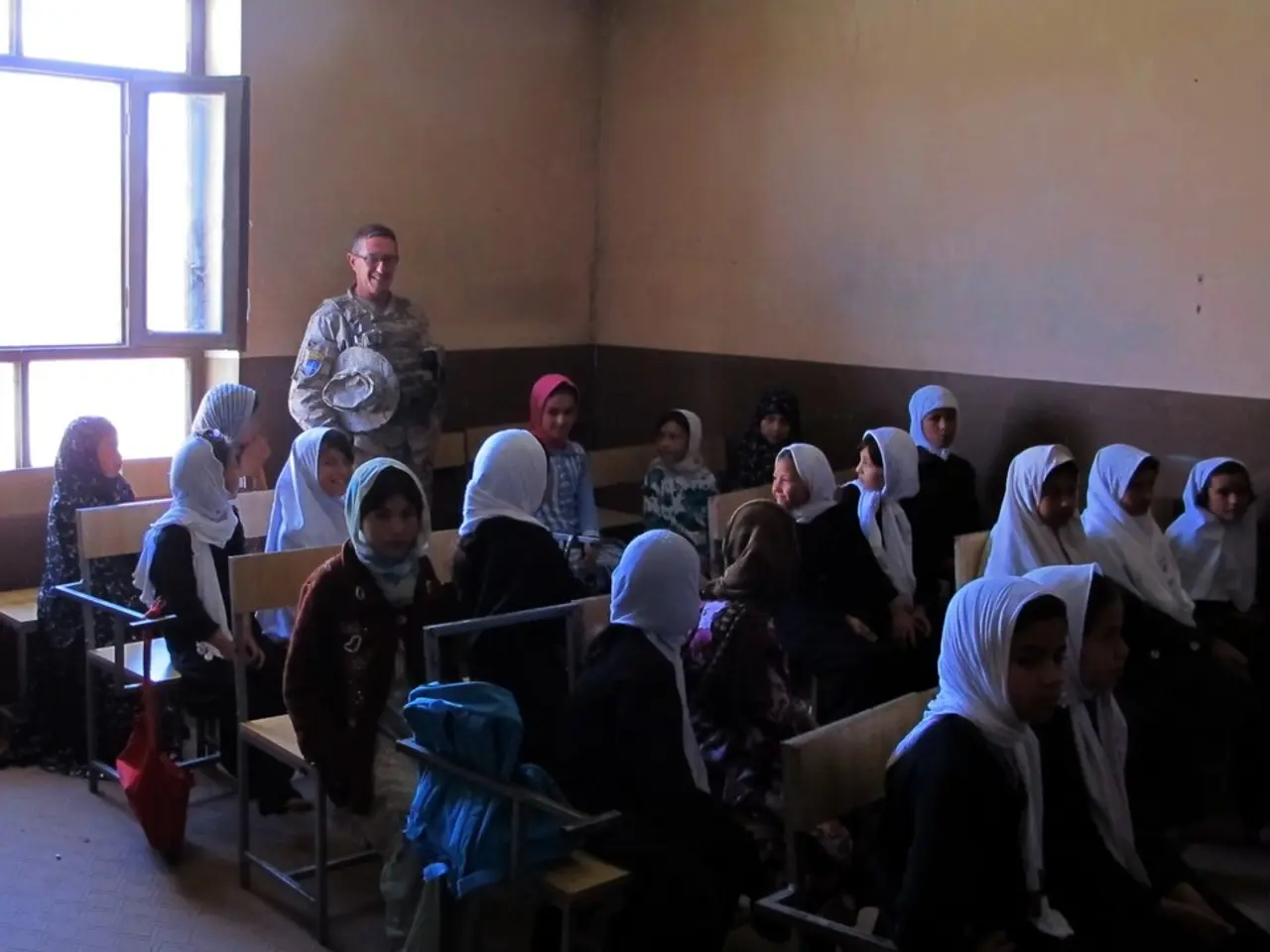Federal Assistance for Students: Minimum number of recipients in a quarter of a century
In the academic landscape of Germany, the financial support system for students is a critical aspect that shapes the experiences of many. One of the main pillars of this system is the BAföG (Federal Training Assistance Act), a programme designed to aid students in meeting their living expenses.
Recent data reveals significant variations in the percentage of students receiving BAföG across federal states. For instance, Saxony and Mecklenburg-Western Pomerania have a higher rate of approximately 20%, while Hamburg, Saarland, and Thuringia have a lower rate of around 10%. These disparities, however, are not solely explained by the economic power of the states, as suggested by Ulrich Müller, head of political analysis at CHE.
The demographic profile of BAföG recipients is also noteworthy. In 2024, most recipients were under 25 years old and no longer lived with their parents. Moreover, more women than men received BAföG, with 59% of recipients being female and 41% being male.
The amount of BAföG one receives is determined by various factors, such as the type of school attended, whether one still lives at home, and the income of the individual or their parents. On average, BAföG recipients received €635 per month in 2024, a slight decrease from €640 in the previous year. However, this figure does not account for the higher cost of living in cities like Munich or Berlin.
Federal spending on BAföG decreased by 9% or €316 million to a total of €3.1 billion in 2024. Despite this decrease, the need for reform in BAföG and similar offers has been a pressing issue for years. Müller suggests that the incoming federal government should provide students with more orientation and security in financing matters, aiming to adapt BAföG funding to the current living situation of students, and combine it in a flexible and comprehensive system.
In addition to BAföG, there are other financial aid options available to students. For instance, since the winter semester 2024/2025, there is a new support for students starting their studies: the study start aid, a one-time grant of 1,000 euros for those under 25 who are starting a degree program for the first time and have previously received social benefits such as unemployment benefit.
However, the current system of student financing in Germany, while offering structured financial proof requirements, scholarships, and loans, does not fully meet the diverse economic realities of today's students. International students, for example, must prove access to at least €11,904 per year to obtain a visa, a figure that does not fully reflect variation in living costs across cities.
In conclusion, while Germany offers a range of financial aid options, the system could better accommodate the full cost spectrum and varying circumstances of today's students, particularly those in higher-cost locations or with non-traditional education paths. The call for reform in student financing remains a pertinent issue, with the incoming federal government poised to address these challenges and provide a more comprehensive and equitable system for all students.
[1] [Source 1] [2] [Source 2] [3] [Source 3] [4] [Source 4] [5] [Source 5]
Energy-efficient personal-finance practices can significantly reduce living expenses for students, making it easier for them to manage their finances while focusing on education-and-self-development. To this end, the incoming federal government could consider adding educational resources on energy efficiency and budgeting to the BAföG programme, empowering students to better understand and handle their finances.
By providing students with well-rounded personal-finance education, the government could foster a more financially independent generation, potentially reducing the need for regular financial assistance in the longer term. This, in turn, would lead to increased energy savings through efficient living and could ultimately help alleviate the issue of funding reform in student financing.




